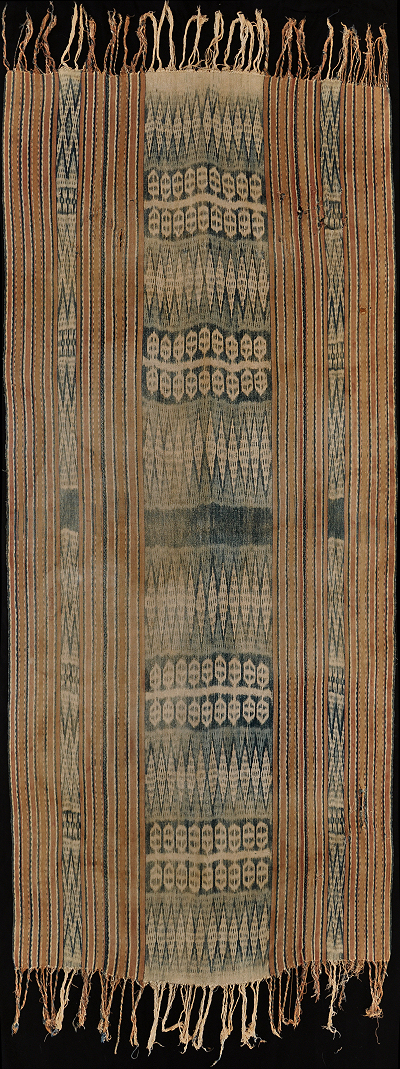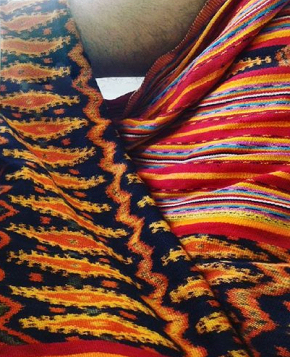| |
 
 | | | |
235 Timor, West Timor
Fat (blanket)  
| | Locale: | Anas region of northern Amanatun, Linome village, Tafuli clan. | | Period: | 19th to early 20th c. | | Yarn: | Cotton, hand-spun, fine | | Technique: | Warp ikat | | Panels: | 3 | | Size: | 76 x 128 cm (2' 5" x 4' 2") LW: 1.68 | | Weight: | 490 g (17.3 oz), 504 g/m2 (1.65 oz/ft2) | | Design: | Middle panel decorated with a design of four sets of lozenges that are connected to a transverse bar, nine on each side. The sets of lozenges are enclosed on both sides by twelve elongated diamonds connected into a comb like pattern, which is called fut auni. The pattern represents spears, auni, alternating with heads, atoni nakan, of the enemy taken in battle. This old form of representing the heads is specific to Linome village and called meo tafuli. The side panels are decorated with lozenges arranged into a narrow grid. All three panels are further decorated with finely ikated stripes - the size of which also fit northern Amanatun provenance. The piece may look innocuous but is related to warfare, and specifically headhunting. | | Comment: | Several small holes and tears show that the piece has had a long and intense life. Colours are faded, but look all natural. Thread is all handspun, and fine for Amanuban standards. | | Background: | Chapters on Timor and West Timor. | | Exhibited: | Timor: Totems and Tokens, Museu do Oriente, Lisbon, 2019/20. | | Published: | Ikat Textiles of the Indonesian Archipelago, 2018
Timor: Totems and Tokens, 2019.
Ikat Textiles of Timor: Indonesian and Timor-Leste, 2025. | | Sources: | No cognates found in literature, nor in museum collections with online search engines. Thanks to James Izacc Bill Key Kase for identifying patterns and region of origin and supplying the photo below of a modern northern Amanatun fat auni.
 | | |

©Peter ten Hoopen, 2025
All rights reserved.
|
|


